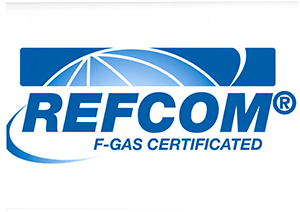In the UK, air conditioning is often thought of in the context of offices, shops, or residential properties and homes. However, the role of air conditioning in industrial sectors is equally important, if not more so as this can have a direct impact on business, production, the environment and consumerism. Whether for manufacturing, storage, or process management, air conditioning plays a critical role in maintaining optimal conditions for both equipment and workers.
The Importance of air conditioning in industrial settings
In industrial environments, precise control over temperature, humidity, and air quality is essential. Many processes rely on maintaining strict conditions to ensure product quality, worker safety, and equipment longevity so without this, there are many risks that could take place. Without appropriate climate control, industries could face disruptions that impact their productivity or the safety of goods.
Here are the main reasons why air conditioning is essential in the industrial sector:
- Temperature control: Some industrial processes require maintaining specific temperature ranges to ensure the quality of products or the safety of materials.
- Air quality improvement: Dust, fumes, and other airborne pollutants can accumulate in industrial environments which can impact production and health and safety.
- Energy efficiency: Modern air conditioning systems are designed to be energy-efficient, helping industries reduce operational costs and lower their carbon footprint.
- Employee comfort and safety: In industries where temperatures can rise due to machinery, ensuring a cool and comfortable environment for workers can prevent heat-related illnesses and improve overall productivity.

Sectors which benefit from industrial air conditioning
Manufacturing
Manufacturing industries often rely on air conditioning to ensure the consistent quality of their products. In sectors such as electronics, pharmaceuticals, and food production, even small fluctuations in temperature or humidity can cause defects or spoilage among goods. For example, in electronics manufacturing, excess heat can damage sensitive components, while in food processing, temperature control is essential to prevent contamination and ensure produce is kept fresh and safe to consume.
Pharmaceuticals
The pharmaceutical industry is heavily regulated, and precise environmental conditions are crucial for ensuring the efficacy and safety of medications. Temperature and humidity must be carefully managed during the production, storage, and transportation of drugs to ensure they are kept at cool temperatures and maintain their potency. Air conditioning systems equipped with humidity control and filtration can create the sterile environments needed for the production of drugs. Additionally, these systems can prevent contamination by controlling airflow and minimising the presence of harmful particles in the air which will subsequently be disgusted by patients.

Data and technology centres
With the rise of digitalisation, data centres are becoming increasingly vital for businesses across the UK. However, the servers and other equipment housed in these facilities generate a significant amount of heat, which can lead to malfunctions or reduced efficiency if not properly managed. Air conditioning in data centres or server rooms is crucial for maintaining a stable temperature, preventing overheating, and ensuring uninterrupted service.
Food and beverages
In the food and beverage sector, maintaining the correct temperature is crucial to preserving the freshness and safety of products. From food production plants to cold storage facilities, air conditioning systems help to ensure that products remain within the required temperature ranges to prevent spoilage and extend shelf life. In environments where perishable goods are handled, temperature fluctuations can cause food to degrade quickly, leading to wastage and financial losses for businesses.
Automotive industry
Precise climate control is required during various stages of the production process when it comes to automobiles. For example, during the painting and finishing stages, air quality and temperature must be carefully regulated to ensure a high-quality finish. Contaminants in the air or incorrect temperatures can affect the paint adhesion, leading to defects or errors. Additionally, many automotive manufacturers are investing in advanced air conditioning systems to maintain optimal conditions in their factories. This is particularly important for the production of electric vehicles (EVs), where battery assembly requires strict temperature control to ensure safety and performance.

The future of industrial air conditioning
As industries continue to evolve, so too do the demands placed on air conditioning systems. New developments in energy efficiency, automation, and smart technology are enabling industries to take better control of their environments. Modern air conditioning systems can now be integrated with building management systems (BMS), allowing real-time monitoring and adjustments to maintain optimal conditions.
Additionally, with a growing emphasis on sustainability, many businesses are looking for eco-friendly solutions that reduce energy consumption while still delivering reliable climate control. Innovations such as variable refrigerant flow (VRF) systems, energy recovery ventilators (ERV), and renewable energy integration are helping to meet these needs.
Industrial Air Conditioning Installations
As a specialist in the industrial sector, Lee Jackson provides a wide range of different systems, brands units that are ideal for warehouses, factories, tool shops, workshops and more. We offer a full air conditioning service which includes the installation process as well as looking into a maintenance schedule and repairs if needed.
Find out more about our industrial air conditioning or get in touch with the team today!


